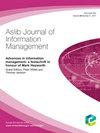谁和什么信息更适合健康广告:代言人和信息框架对视觉注意力和广告效果的综合影响
IF 2.4
3区 管理学
Q3 COMPUTER SCIENCE, INFORMATION SYSTEMS
引用次数: 0
摘要
目的探讨广告主体类型和信息框架对健康广告视觉注意和广告效果的影响,包括涉入调节因子。本文旨在对这一问题进行探讨。设计/方法/方法采用2(名人与专家)× 2(积极与消极框架)受试者间因子设计进行实验。眼球追踪测量视觉注意力,问卷调查测量广告效果和产品参与。来自78个回应的实验数据显示,健康广告没有吸血鬼效应。负面信息框架下的名人代言比正面信息框架下的名人代言获得了更多的关注和更少的广告回忆。在专家认可条件下,消极信息框架和积极信息框架吸引了相同数量的注意力和广告回忆。高参与的被试对专家的广告信息比名人的广告信息更关注,但广告回忆并没有显著增加。低参与度的参与者对专家和名人的广告信息表现出同样的关注,但对专家的广告信息有更大的回忆。对代言人的视觉关注与广告态度有关,但与广告回忆无关。广告态度影响行为意向。独创性/价值研究名人和信息框架对广告效果的影响主要集中在对广告刺激的反应上,而不是信息过程。作者提供了观众对代言人和健康信息的信息加工及其与广告效果的关系的实证证据。本研究从信息加工的角度,将健康广告中的代言人与信息框架相结合,以促进公众健康传播。本文章由计算机程序翻译,如有差异,请以英文原文为准。
Who and what messages are more suitable for health ads: the combined influence of endorsers and message framing on visual attention and ad effectiveness
PurposeThe author examined effects of endorser type and message framing on visual attention and ad effectiveness in health ads, including the moderator of involvement. This paper aims to discuss this issue.Design/methodology/approachAn experiment was conducted with a 2 (celebrity vs. expert) × 2 (positive vs. negative framing) between-subject factorial design. Eye-tracking measured visual attention and a questionnaire measured ad effectiveness and product involvement.FindingsExperimental data from 78 responses showed no vampire effect in the health advertisements. Celebrity endorsement with negative message framing received more attention and had less ad recall than that with positive message framing. Negative and positive message framing attracted the same amount of attention and ad recall in the expert endorsement condition. High involvement participants paid more attention to the ad message with the expert than that with the celebrity, but ad recall was not significantly increased. Low involvement participants exhibited the same attention to the ad message with the expert and with the celebrity, but had greater recall of the ad message with the expert. Visual attention to the endorser was associated with ad attitude but not with ad recall. Ad attitude impacted behavioral intention.Originality/valueStudies examining influences of celebrity and message framing on ad effectiveness have focused on the response to advertising stimuli, not the information process. The author provides empirical evidence of the viewers' information processing of endorsers and health messages, and its relationship with ad effectiveness. The study contributes to the literature by combining endorser and message framing in health ads to promote public health communication from the information processing perspective.
求助全文
通过发布文献求助,成功后即可免费获取论文全文。
去求助
来源期刊

Aslib Journal of Information Management
COMPUTER SCIENCE, INFORMATION SYSTEMS-
CiteScore
5.30
自引率
19.20%
发文量
79
期刊介绍:
Aslib Journal of Information Management covers a broad range of issues in the field, including economic, behavioural, social, ethical, technological, international, business-related, political and management-orientated factors. Contributors are encouraged to spell out the practical implications of their work. Aslib Journal of Information Management Areas of interest include topics such as social media, data protection, search engines, information retrieval, digital libraries, information behaviour, intellectual property and copyright, information industry, digital repositories and information policy and governance.
 求助内容:
求助内容: 应助结果提醒方式:
应助结果提醒方式:


